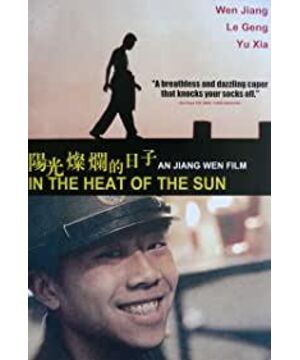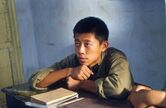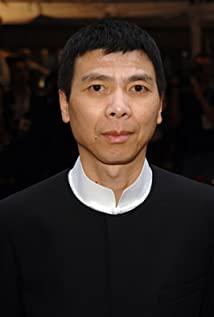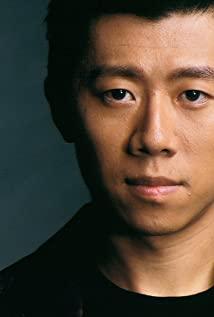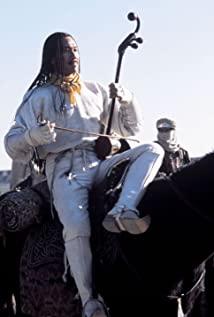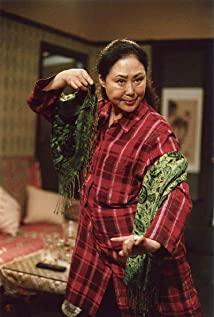Watching "Sunny Days" again, I have lost the feeling. I am terrified. I remembered that I liked this movie very much. I remember many scenes very clearly. Now that I have reassembled it together, it seems a little strange and I have no heart. even contempt. Come to think of it, it may be because the perspective has shifted. There is no longer the tension of picking locks and picking up girls on the street, but more of asking: What is the value of individual memory?
"Sunny Day" is adapted from "Ferocious Animals", which is the memory of the Cultural Revolution of some people, but the secret memory of very few people. Most teenagers don't live that way. If it is used as evidence to support the New Left, it is undoubtedly an "orphan" and cannot be established. I also hope that those who hold this view will read the novel carefully and not think that "the sun is shining" is some kind of generalization. However, that's another question. After all, what remains in the memory of this group of children are some appearances, and what is at the root and under the iceberg still needs sociological hooking and revealing.
This is a work about circle culture. I also grew up in a college, and I understand some of the atmosphere, but I still don't rush to the age, I just understand it. In "Ferocious Animals", the "growth" of the children in the military compound during the Cultural Revolution has the nature of autobiography. Many privileges are mentioned lightly in the novel: for example, the orderly unloading rice from the car, someone who is known as the "North Pao" joined the circle, it was revealed that it belonged to the Beijing Light Bulb Factory, and then disappeared, "We never follow no. identities of people". More out of reach, go to Lao Mo every three to five. The scary thing is that this group is proud of being brave and ruthless, and pays attention to their origins, and their destination is to "be a soldier" when they are 18 years old. This was already the way out for the most enviable youth at the time. This kind of complacent mentality is probably unimaginable for non-species. "Bright Sunshine" adjusts its focus and narrates with the clues of Ma Xiaojun and Milan, avoiding a mess of scattered sand, but also obscuring the sense of superiority inherited from a group reflected by "scattering sand". "Sunny" won the award because the story is "international", about the lust and friendship of a restless teenager.
Milan in "Bright Sunshine" is healthy, sunny, and even dazzling. She directly opened up the initial sexual consciousness of an ignorant teenager. However, she is destined to be the object of looting by the teenagers, and she will definitely belong to the best boys among them. Ma Xiaojun can only get a part of her "brilliance". Wang Shuo said many times that he was running for bad people, but he didn't expect that he was forced to become a good person, and there were factors that made him unable to take part in the circle. This setback is fatal. Most rebellions have to do with women they like, and they can't identify with the order because they can't live in it—as is usually the case. Ma Xiaojun's emotional turn towards Milan is undoubtedly credible. The more he yearns for it, the more heartbreakingly he destroys his idol, at least in his own mind. Therefore, their rebellion is a kind of publicity, not derailment. It's like smoking and swearing in order to show humility, to exaggerate one's guts, not the pain that comes from the depths of life. This should be very different from A Clockwork Orange.
For this memory, "Animal Ferocious" and "Sunshine" both maintain the "personal" rhetoric. First told, and then subverted, obviously there are a lot of unspeakable hidden. It is understandable that Jiang Wen and Wang Shuo do not have very clear memories of them (they are teenagers), and they also temporarily lack a value judgment. Except for the excess hormones, no one is responsible, and they have no way to find an explanation. It's just that they stubbornly feel that those days are memorable, even though the film ends with a fool calling them stupid. A fool is a fool. No, they once again stood on the top of honor, driving luxury cars around Beijing's overpasses, just as they rode bicycles to shuttle through hutongs.
Emotional times. It should be said that without comparison, there is no their emotion. The later "Days Relating to Youth" recounted the experience of this group in the late 1970s and early 1980s, and they were still trend-setters. They still laugh at the system nonchalantly, but are sucking nourishment from it, an ugly scene that is a contemporary ailment. The difference is that they returned to the public space, revived their own experiences, painted them with the paint of the times, and pretended to represent everyone.
no.
View more about In the Heat of the Sun reviews


